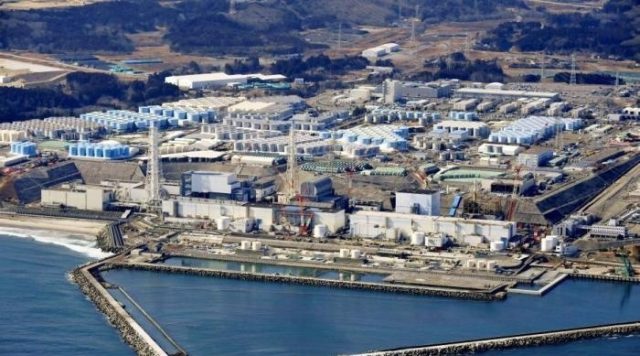Japan Supreme Court: Japanese government was not liable for the Fukushima nuclear accident
- Statins Lower Blood Lipids: How Long is a Course?
- Warning: Smartwatch Blood Sugar Measurement Deemed Dangerous
- Mifepristone: A Safe and Effective Abortion Option Amidst Controversy
- Asbestos Detected in Buildings Damaged in Ukraine: Analyzed by Japanese Company
- New Ocrevus Subcutaneous Injection Therapy Shows Promising Results in Multiple Sclerosis Treatmen
- Dutch Man Infected with COVID-19 for 613 Days Dies: Accumulating Over 50 Virus Mutations
Japan Supreme Court: Japanese government was not liable for the Fukushima nuclear accident
- Red Yeast Rice Scare Grips Japan: Over 114 Hospitalized and 5 Deaths
- Long COVID Brain Fog: Blood-Brain Barrier Damage and Persistent Inflammation
- FDA has mandated a top-level black box warning for all marketed CAR-T therapies
- Can people with high blood pressure eat peanuts?
- What is the difference between dopamine and dobutamine?
- How long can the patient live after heart stent surgery?
Japan Supreme Court: Japanese government was not liable for the Fukushima nuclear accident.
According to the Japan Broadcasting Association TV report, the Supreme Court of Japan on June 17 made a unified judgment on four class action lawsuits, finding that the Japanese government was not responsible for the Fukushima nuclear accident.
According to Kyodo News, this is the first time Japan’s Supreme Court has ruled on the Japanese government’s responsibility for the Fukushima nuclear accident.
The verdict could have an impact on about 30 other similar lawsuits currently taking place across Japan, the report said.

The second small court of the Supreme Court of Japan on the 17th ruled on four class actions initiated by residents of Fukushima, Gunma, Chiba and Ehime prefectures. In four class-action lawsuits, the plaintiff residents sued Tokyo Electric Power Co., the operator of the Fukushima Daiichi nuclear power plant, and the Japanese government.
The residents who filed the lawsuit said that the Japanese government’s Earthquake Investigation and Research Promotion Headquarters released a “long-term assessment” of earthquake predictions in 2002, and the government could have predicted the occurrence of a huge tsunami, but the government did not require TEPCO to take preventive measures to deal with the tsunami.
The Supreme Court of Japan stated in its judgment that the magnitude of the tsunami caused by the “3.11” earthquake exceeded expectations, and even if the government ordered TEPCO to take preventive measures, the possibility of a nuclear accident could not be avoided. No compensation for accidents.
According to Japan’s “Mainichi Shimbun”, about 30 similar lawsuits have been launched across Japan so far, with more than 12,000 plaintiffs. Lower courts have disagreed in previous rulings.
Some local courts have ruled that both the Japanese government and TEPCO should be liable for compensation, and some local courts have dismissed claims against the Japanese government.
Regarding the above-mentioned four class actions, the Supreme Court of Japan upheld the decision of the lower court in a ruling in March this year, holding that Tepco should bear all the compensation liabilities alone, with a total compensation of more than 1.4 billion yen.
On March 11, 2011, an earthquake with a magnitude of 9.0 occurred in the waters off northeastern Japan and triggered a huge tsunami, causing heavy casualties.
Affected by the earthquake and tsunami, a large amount of radioactive material leaked from the Fukushima Daiichi Nuclear Power Plant.
Japan Supreme Court: Japanese government was not liable for the Fukushima nuclear accident
(source:internet, reference only)
Disclaimer of medicaltrend.org
Important Note: The information provided is for informational purposes only and should not be considered as medical advice.



